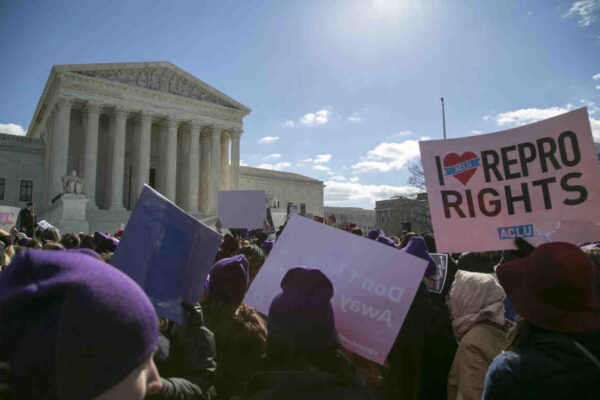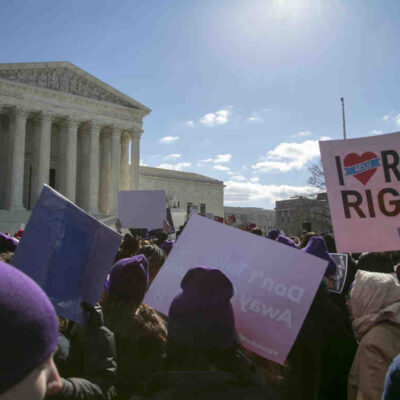The following column originally appeared in The Lens on December 12, 2019.
Recently the ACLU of Louisiana filed a brief with the U.S. Supreme Court in a case brought by the Center for Reproductive Rights challenging a law that would decimate access to abortion in Louisiana.
The stakes could not be higher.
This will be the first abortion case heard by the U.S. Supreme Court since President Trump’s appointment of conservative justices Neil Gorsuch and Brett Kavanaugh. If the Louisiana law is upheld, it would upend the precedent set by a similar case out of Texas just four years ago and threaten the fundamental right to abortion enshrined in Roe v. Wade.
June Medical Services v. Gee challenges a Louisiana law that requires doctors who work at abortion clinics to have admitting privileges at a local hospital. This is a medically unnecessary requirement that would shutter every abortion clinic in the state but one. Like similar laws around the country, the Louisiana law is an abortion ban in disguise. Designed to look like an attempt to protect women’s health, this law’s true intent is to close clinics and eliminate access to abortion.
Legal factfinding and evidence from numerous other cases confirms that the Louisiana law would significantly burden people’s ability to get an abortion in Louisiana. In fact, every district court to have examined the effects of comparable admitting-privileges laws has reinforced this determination.
Most abortion providers in Louisiana have been denied hospital admitting privileges for reasons completely unrelated to their credentials or competency – like hospitals’ business needs or their unwillingness to get involved in a controversial subject. In fact, as the Supreme Court itself has noted, “hospitals often condition admitting privileges on reaching a certain number of admissions per year,” a requirement most abortion providers cannot satisfy due to “the fact that abortions are so safe.”
It is important to note that the impact of these restrictions is not felt evenly. The burden falls most heavily on low-income and rural Louisianans who are struggling to support the families they have and are forced travel long distances when clinics close. A Guttmacher Institute study found that, even before these new restrictions were in place, women in many rural Louisiana parishes lived more than 100 miles away from an abortion clinic.
Rather than protecting people’s health, these restrictions imperil the health and safety of already-vulnerable communities.
Just four years ago, the U.S. Supreme Court saw through this ruse and struck down a nearly identical Texas law in Whole Woman’s Health v. Hellerstedt, finding that these bogus restrictions served no medical purpose.
In that case, the justices ruled correctly that the restrictions in question were a sham intended to eliminate access to abortion and block people from making their own personal medical decisions. Nonetheless, the 5th Circuit Court of Appeals defied that 2016 ruling and upheld Louisiana’s requirement.
In her concurring opinion Justice Ruth Bader Ginsburg wrote “it is beyond rational belief that” the law “could genuinely protect the health of women,” noting that “when a State severely limits access to safe and legal procedures, women in desperate circumstances may resort to unlicensed rogue practitioners…at great risk to their health and safety.”
The fact that the U.S. Supreme Court would agree to reopen an issue it resolved clearly and decisively just a few years ago is alarming, but we are not going to let them restrict Americans’ reproductive freedoms without a fight.
The Court will hear arguments in the case in March, so now is the time to make our voices heard.
We were proud to speak out alongside 200 other organizations, including the American Medical Association, in urging the U.S. Supreme Court to uphold its own precedent and strike down these harmful restrictions once again.


